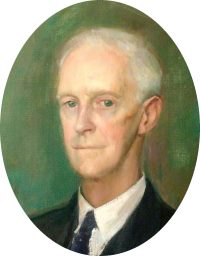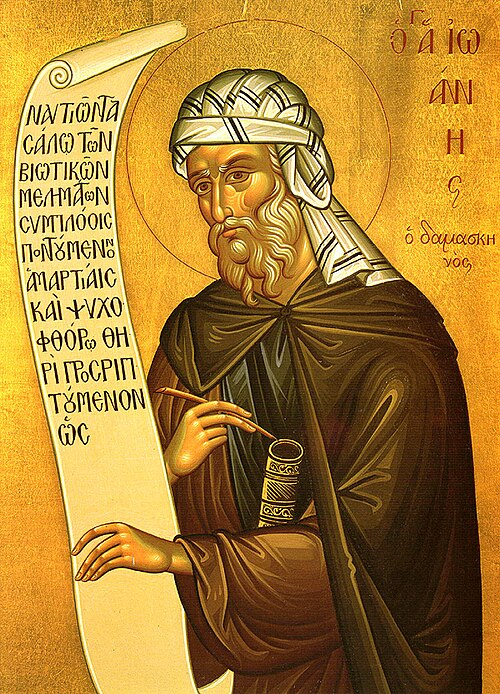This is a joyful Easter anthem for SATB choir.
Come, ye faithful, raise the strain Of triumphant gladness;
God hath brought His Israel Into joy from sadness;
'Tis the Spring of Souls today, Christ hath burst His prison,
And from three days sleep in death As a Sun hath risen
Queen of seasons, bright With the day of slendour,--Alleluia!
With the royal feast of feasts, Comes its joy to render;--Alleluia!
Comes to glad Jerusalem, Who with true affection--Alleluia--
Welcomes in unwearied strains Jesus' Resurrection.--Alleluia!
Neither might the gates of death, Nor the tomb's dark portal,
Nor the watchеrs, nor the seal, Hold Thee as a mortal;
But today amidst the twеlve Thou didst stand, bestowing
That Thy peace which evermore Passeth human knowing.
Sir Reginald Sparshatt Thatcher (11 March 1888 – 6 May 1957) was an English musician, composer, teacher and musical administrator. He was assistant music-master at Clifton College, 1911; director of music, Royal Naval College, Osborne, 1914; director of music at Charterhouse School, 1919 and Harrow School, 1928–36. He was appointed as Sir Adrian Boult's deputy in the BBC music department in 1937, and was principal of the Royal Academy of Music (RAM), London, from 1949 to 1955.
Life and career
Thatcher was born at Midsomer Norton, Somerset, the son of a brewer at Welton, Midsomer Norton, and one of fifteen children. He was educated privately, and then won an open organ scholarship to the Royal College of Music, London. From there he progressed to Worcester College, Oxford, as organ scholar in 1907. He graduated in 1910, and then took a doctorate in music.
After leaving Oxford Thatcher's first post was assistant music master at Clifton College, from 1911. Thatcher was appointed director of music at the Royal Naval College, Osborne in 1914, but during the First World War he joined the army, and was awarded the Military Cross and the OBE. In 1915 he married Ruth Trethowan; they had one daughter and one son. The latter was killed in action in 1942. After the war Thatcher served successively as director of music at Charterhouse School (1919–28) and Harrow School (1928–36).
In 1937 Sir Adrian Boult, who combined the roles of director of music at the BBC and chief conductor of the BBC Symphony Orchestra, was in need of a deputy to take over day-to-day administrative work, leaving him freer to concentrate on the orchestra. Thatcher, an old friend from their university days, became Boult's deputy director. Thatcher's nature was unassertive and sensitive, and although, with Boult's support, he was several times offered the post of director, he always refused. During the Second World War, when the BBC had to be evacuated from London, Thatcher organised three successive moves for the music department, first to Evesham, then Bristol and finally to Bedford. As The Times put it, "he left for the quieter life of the RAM in 1943".
At the RAM Thatcher first held the post of warden; he was promoted to vice-principal in 1945, and on the death of the principal, Sir Stanley Marchant, in 1949, Thatcher was appointed as his successor. The Times obituarist said of his tenure:
He took an active part in London's musical life; a wise committee man he served the Musicians Benevolent Fund, the Royal Musical Association as treasurer, the Royal Philharmonic Society, the Royal College of Organists, of which he was president from 1954 to 1956, and the Incorporated Society of Musicians.
The obituarist added that Thatcher's term of office at the academy was "marked by the urbanity towards staff, students, and strangers that he had inherited from Merchant".
Thatcher was the composer of the anthem, Come ye faithful. Portraits of him by Walter Stoneman and Elliott & Fry hang in the National Portrait Gallery, London. His portrait was also painted by Rodrigo Moynihan.
Thatcher was knighted in 1952. Ill health led him to retire in from the RAM 1955, and he died at his home in Cranleigh, Surrey, two years later, at the age of 69. His widow survived him, and died in 1981.
Taken from Wikipedia
John of Damascus or John Damascene, born Yūḥana ibn Manṣūr ibn Sarjūn, was an Arab Christian monk, priest, hymnographer, and apologist. He was born and raised in Damascus c. AD 675 or AD 676; the precise date and place of his death is not known, though tradition places it at his monastery, Mar Saba, near Jerusalem, on 4 December AD 749. A polymath whose fields of interest and contribution included law, theology, philosophy, and music, he was given the by-name of Chrysorroas (Χρυσορρόας, literally "streaming with gold", i.e. "the golden speaker"). He wrote works expounding the Christian faith, and composed hymns which are still used both liturgically in Eastern Christian practice throughout the world as well as in western Lutheranism at Easter.
He is one of the Fathers of the Eastern Orthodox Church and is best known for his strong defence of icons. The Catholic Church regards him as a Doctor of the Church, often referred to as the Doctor of the Assumption due to his writings on the Assumption of Mary. He was also a prominent exponent of perichoresis, and employed the concept as a technical term to describe both the interpenetration of the divine and human natures of Christ and the relationship between the hypostases of the Trinity. John is at the end of the Patristic period of dogmatic development, and his contribution is less one of theological innovation than one of a summary of the developments of the centuries before him. In Catholic theology, he is therefore known as the "last of the Greek Fathers".
The main source of information for the life of John of Damascus is a work attributed to one John of Jerusalem, identified therein as the Patriarch of Jerusalem. This is an excerpted translation into Greek of an earlier Arabic text. The Arabic original contains a prologue not found in most other translations, and was written by an Arab monk, Michael, who explained that he decided to write his biography in 1084 because none was available in his day. However, the main Arabic text seems to have been written by an unknown earlier author sometime between the early 9th and late 10th century. Written from a hagiographical point of view and prone to exaggeration and some legendary details, it is not the best historical source for his life, but is widely reproduced and considered to contain elements of some value. The hagiographic novel Barlaam and Josaphat is a work of the 10th century attributed to a monk named John. It was only considerably later that the tradition arose that this was John of Damascus, but most scholars no longer accept this attribution. Instead much evidence points to Euthymius of Athos, a Georgian who died in 1028.


No comments:
Post a Comment